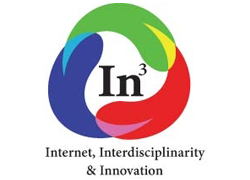IMDEA Networks

Archives: Events
5G Communications: A Thousand Times More Network Capacity
Only a year ago Spaniards began to enjoy 4G mobile networks, which increase tenfold the transmission rates of mobile data when compared to the third generation. 5G network development is now underway, intent on providing a network with a capacity one thousand times higher than the previous generation.
Read more arrow_right_altNetwork Virtualization: Vision, Algorithms, Prototype
Virtualization is a powerful paradigm in computer science, as it allows to decouple software and services from the constraints of the underlying physical infrastructure. Virtualization is also one of the main innovation motors in today's Internet
Read more arrow_right_altHarnessing Visible Light for Time Synchronization and Mobile Context Recognition
Visible light is ubiquitous in the cyber-space nowadays. In this talk, I will introduce our recent work about how to harness visible light for mobile computing applications in both temporal and spatial design domains. Our work leverages the fact that the fluorescent light intensity changes with a stable period, which can serve as both a global time reference and an indoor environment indicator.
Read more arrow_right_altPublish/Subscribe for Large-Scale Social Interaction: Design, Analysis and Resource Provisioning
Publish/subscribe (pub/sub) is a popular communication paradigm in the design of large-scale distributed systems. We are witnessing an increasingly widespread use of the pub/sub for wide array of applications both in industry and academia and yet there is a lack of detailed study of a large-scale real-world pub/sub system.
Read more arrow_right_altExpressive and efficient data path provision
One of the most important achievements of Software-Defined Networking is a possibility to redefine existing invariants in network management, This talk covers three important aspects of data path provision: (1) what should be flexible at the network element level to express various economic models and how different characteristics impact desired objective functions?; (2) how to represent this expressiveness efficiently on data plane; and 3) new abstractions that allow to integrate services from heterogeneous controllers without standardization of Northbound API.
Read more arrow_right_altSafe Connected Vehicles
Our objective is to guarantee that vehicles that coordinate their operations will operate safely with all of the other vehicles, implemented by all of the other manufacturers, on the roadway.
Read more arrow_right_alt2013 IEEE OnlineGreenComm, the 3th International Online Conference on Green Communications
2013 IEEE Online Conference on Green Communications is the 3rd edition of IEEE OnlineGreenComm conducted entirely online and dedicated to addressing the challenges in energy-efficient communications and communications for green technologies.
Read more arrow_right_altUtility Optimization for Multi-Transmitter Wireless Data Systems
We study algorithms for carrier and rate allocation in cellular systems with distributed components such as a heterogeneous LTE system with macrocells and femtocells. Existing work on LTE systems often involves centralized techniques or requires significant signaling, and is therefore not always applicable in the presence of femtocells. More distributed CSMA-based algorithms (carrier-sense multiple access) were developed in the context of 802.11 systems and have been proven to be utility optimal. However, the proof typically assumes a single transmission rate on each carrier. Further, it relies on the CSMA collision detection mechanisms to know whether a transmission is feasible. In this talk we present a framework for LTE scheduling that is based on CSMA techniques. In particular we first prove that CSMA-based algorithms can be generalized to handle multiple transmission rates in a multi-carrier setting while maintaining utility optimality. We then show how such an algorithm can be implemented in a heterogeneous LTE system where the existing Channel Quality Indication (CQI) mechanism is used to decide transmission feasibility.
Read more arrow_right_altBitcoin. The TCP/IP of finances?
Bitcoin is a decentralized peer-to-peer payments network. It is the first and most widely used example of a new kind of money known as cryptocurrency. Transactions are fast, non-repudiable and almost anonymous. Fees are extremely cheap and every single transaction is stored in a ledger called the block chain.
Read more arrow_right_altIn3 conference: the first international conference on Internet Science
This unique conference will be the venue fostering dialogue among scholars and practitioners belonging to these disciplines.
Event website: http://www.internet-science.eu/1st-internet-science-conference
Read more arrow_right_alt











Recent Comments